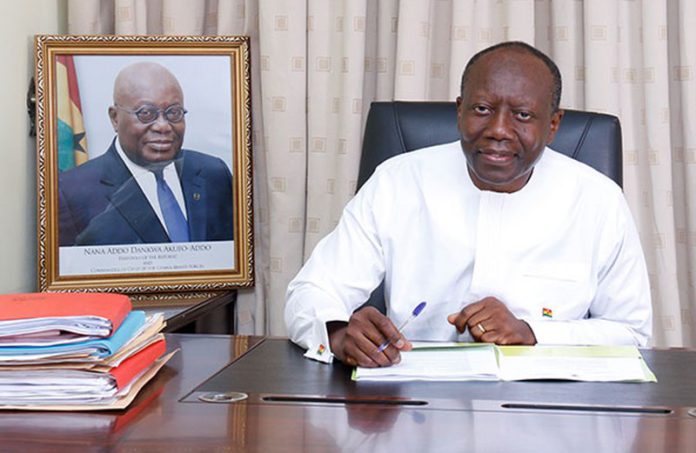
Government is optimistic the suspension of debt service payments under certain categories of its external debt will help conserve foreign reserves.
According to the Finance Minister, Ken Ofori-Atta, Ghana’s economy will bounce back strongly in 2023.
He pointed out that the ensuing years will focus on building an entrepreneurial and export-driven economy as “we grow the economy to protect and create jobs, tackle inflation, and strengthen our currency. Importation of food should soon be a thing of the past”.
So far, the cedi has staged a strong recovery to the US dollar and other major foreign currencies following the launch of the domestic debt exchange programme on December 5, 2022.
From about ¢14 to a dollar, the cedi is now hovering around ¢9, gaining a little over 30% against the dollar.
Analysts expect that the suspension of external debt payments will help the cedi continue its upward trajectory against major trading currencies.
The announcement of the debt exchange programme coupled with the International Monetary Fund staff-level agreement, market watchers, believe had helped the cedi to stage a remarkable rebound against its major trading partners, as the demand for forex has significantly reduced.
The government on Monday, December 19, 2022, also announced a suspension of debt service payments under certain categories of its external debt, pending an orderly restructuring as the country builds up to an Executive Board approval for a $3 billion bailout from IMF.
The suspension which includes payment obligations on Eurobonds, commercial term loans, and most bilateral debt, will boost the foreign reserves of the country.
ALSO READ:
Deadline for domestic debt exchange extended
Govt suspends external debt payments
“We are also evaluating certain specific debts related to projects with the highest socio-economic impact for Ghana which may have to be excluded. This suspension is an interim emergency measure pending future agreements with all relevant creditors,” the statement explained.
